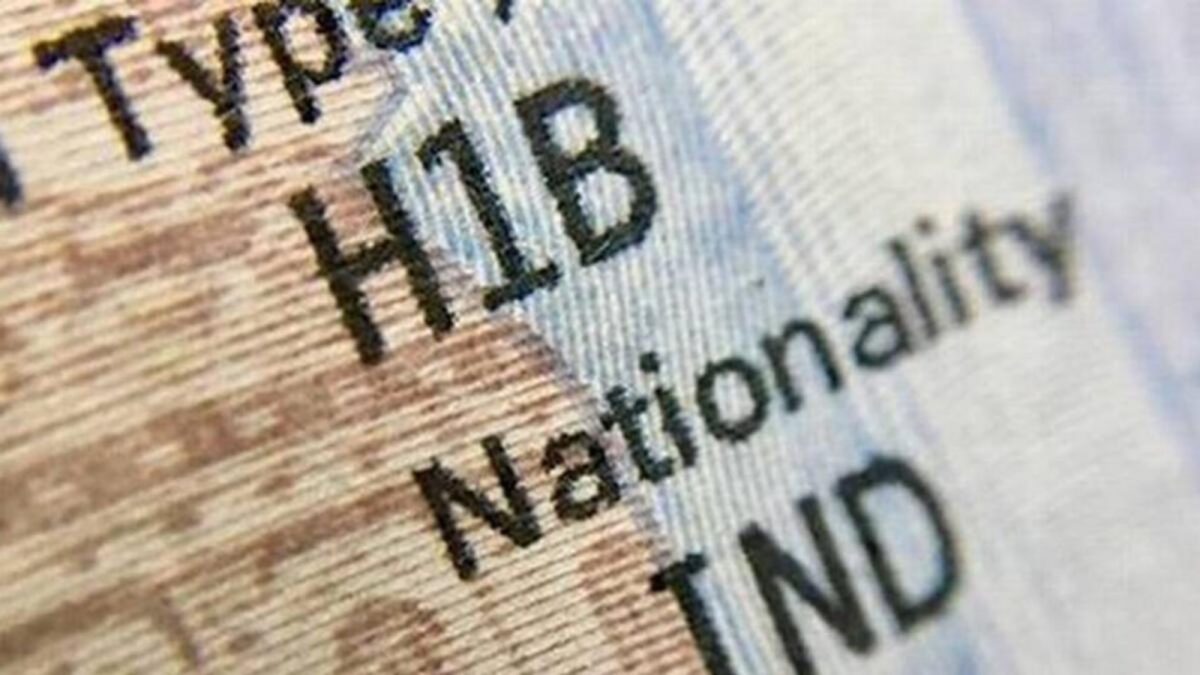The Donald Trump administration is planning a major shake-up of the H-1B visa programme, one of the most sought-after paths for skilled foreign workers, especially Indians, to work in the United States.
Beyond the earlier shock proposal of a $100,000 (around Rs 88 lakh) mandatory fee, the government is now considering even stricter rules on how companies can use the visa and who qualifies for it.
The proposed regulation, titled “Reforming the H-1B Nonimmigrant Visa Classification Program,” has been listed in the Federal Register and aims to bring sweeping changes to the system.
According to the Department of Homeland Security (DHS), the new rules are meant “to improve the integrity of the H-1B nonimmigrant program and better protect US workers’ wages and working conditions.”
Here’s what we know about the new rules
-Narrowing cap exemptions
At present, universities, their affiliated non-profit entities, non-profit research organisations, health institutions, and government research bodies are exempt from the annual H-1B visa cap. DHS now plans to tighten these exemptions, meaning fewer organisations may qualify under the new rules.
-Tougher scrutiny for employers
Companies that have previously violated wage or labour conditions could face more intense checks. The DHS intends to expand oversight of such employers to ensure compliance and protect US workers’ rights.
-Stricter monitoring of third-party placements
The proposal also targets staffing and consulting agencies that place H-1B workers at client sites, a common practice in the tech and IT sectors. DHS has suggested increased scrutiny and documentation requirements for such arrangements.
- Restrictions on employment-based green cards
The new framework could also make it harder for employers to use O-1 visas or national interest waivers for hiring highly skilled foreign professionals, narrowing alternative immigration pathways.
-Redefining ‘specialty occupation’
DHS has also proposed a clearer definition of what qualifies as a “specialty occupation.” The draft rule states, “The specialty occupation definition also clarifies that although the position may allow for a range of qualifying degree fields, each of the fields must be directly related to the duties of the position.”
According to the regulatory notice, the rule could be officially published by December 2025.
**
Trump’s H1-B clampdown**
Donald Trump , in September, signed a proclamation that could shake up the US visa system, introducing a $100,000 fee for new H-1B applications filed from outside the country.
Trump defended the measure as a step to protect American jobs, saying it would ensure US companies hire foreign professionals “only when no qualified domestic candidates are available.”
He explained, “We need workers, we need great workers, and this pretty much ensures that that’s going to happen.” Trump added that the rule would make companies “think twice before hiring abroad simply because it’s cheaper,” emphasising that employers should bring in foreign talent only when essential.
Following widespread backlash from businesses and visa holders, the administration clarified that the hefty $100,000 fee (around Rs 88 lakh) would apply only to new H-1B applicants from outside the US, not to those already living or working there. Renewals and returning visa holders would also be exempt.
Alongside the fee, Trump had also unveiled new immigration options a few months ago, the “Gold Card” and “Platinum Card” programmes. These would allow wealthy immigrants and investors to gain long-term residency by making large financial contributions to the US economy.
Trump said the scheme would attract investment and create jobs, while still keeping tight controls on employment-based visas.
If implemented, these reforms could deeply affect thousands of Indian professionals and students who depend on the H-1B route for work in the US, particularly in the tech and healthcare sectors.
With input from agencies
)